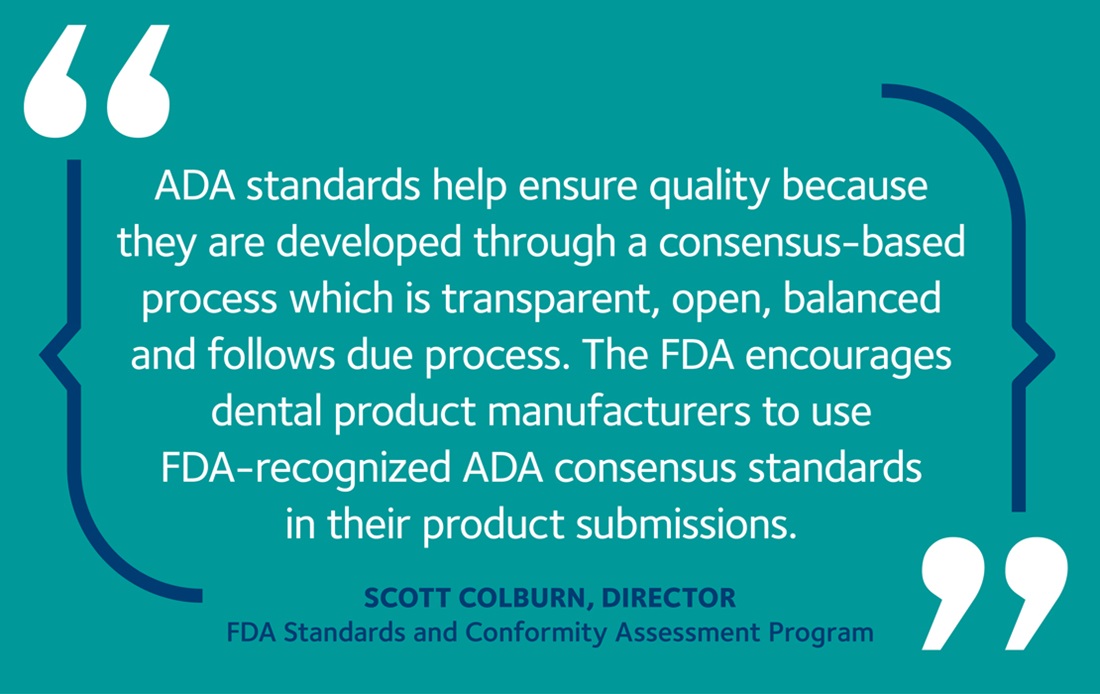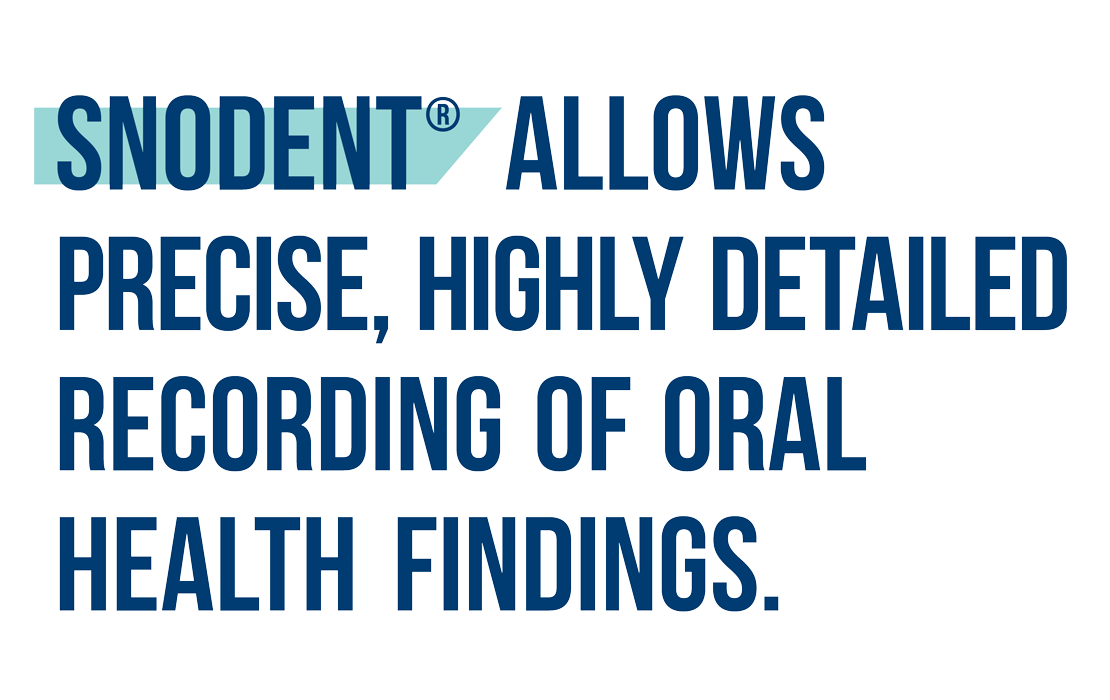Dental standards
The ADA, an ANSI-Accredited Standards Developer, sets standards for nearly every tool of dentistry, ensuring their safety, reliability and efficacy for dentists and the public. Over 400 volunteers from a wide range of interests contribute their expertise.
The ADA develops standards for dental products and informatics. Learn more about standards and ways to participate.
Standards for secure, interoperable exchange of clinical and administrative dental data across health IT systems.
Standards provide a roadmap for evaluating and integrating AI systems into dental practice by establishing criteria for safety, efficacy, transparency and fairness.
This standard sets the terms used to describe dental disease for accurate data recording and exchange of diagnostic concepts.
Maintains the data content specifications for dental billing. The Dental Content Committee has a formal consultative role under HIPAA for all transactions affecting dental health care services.





